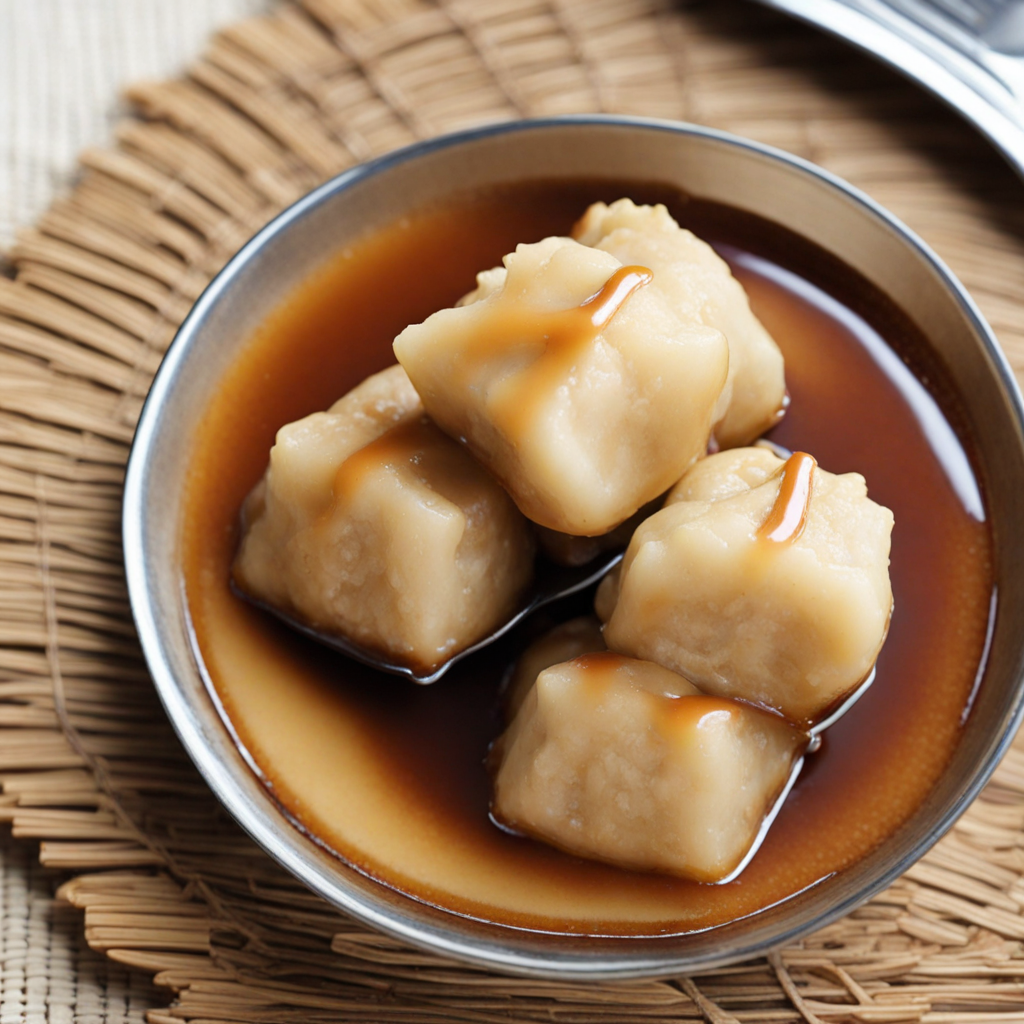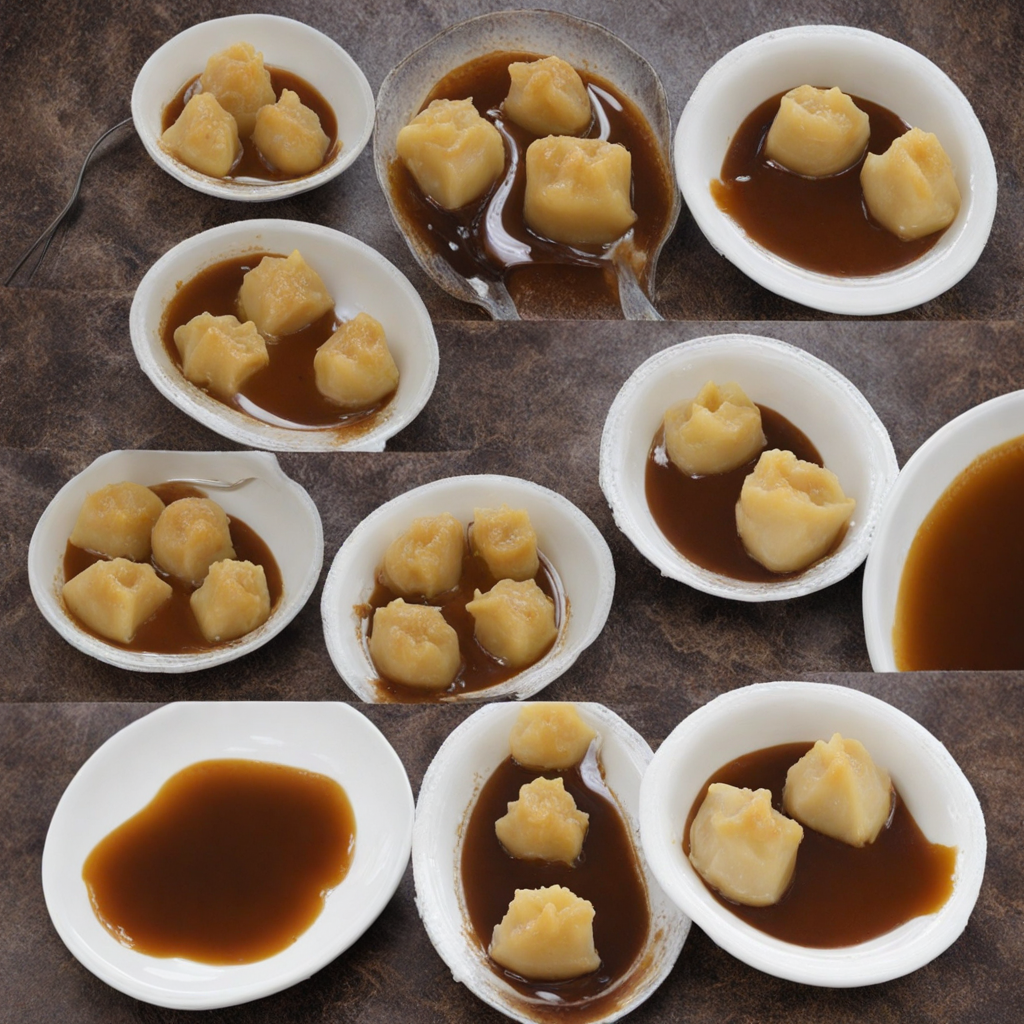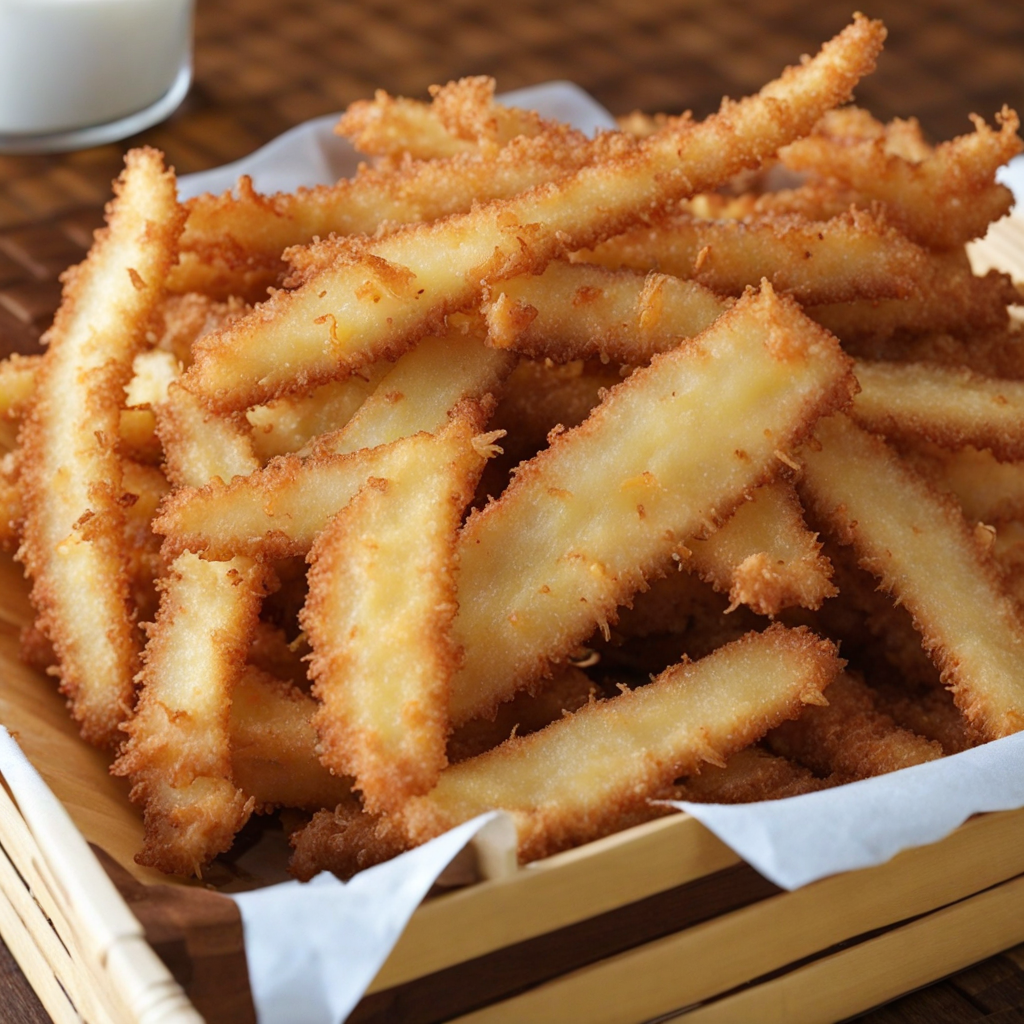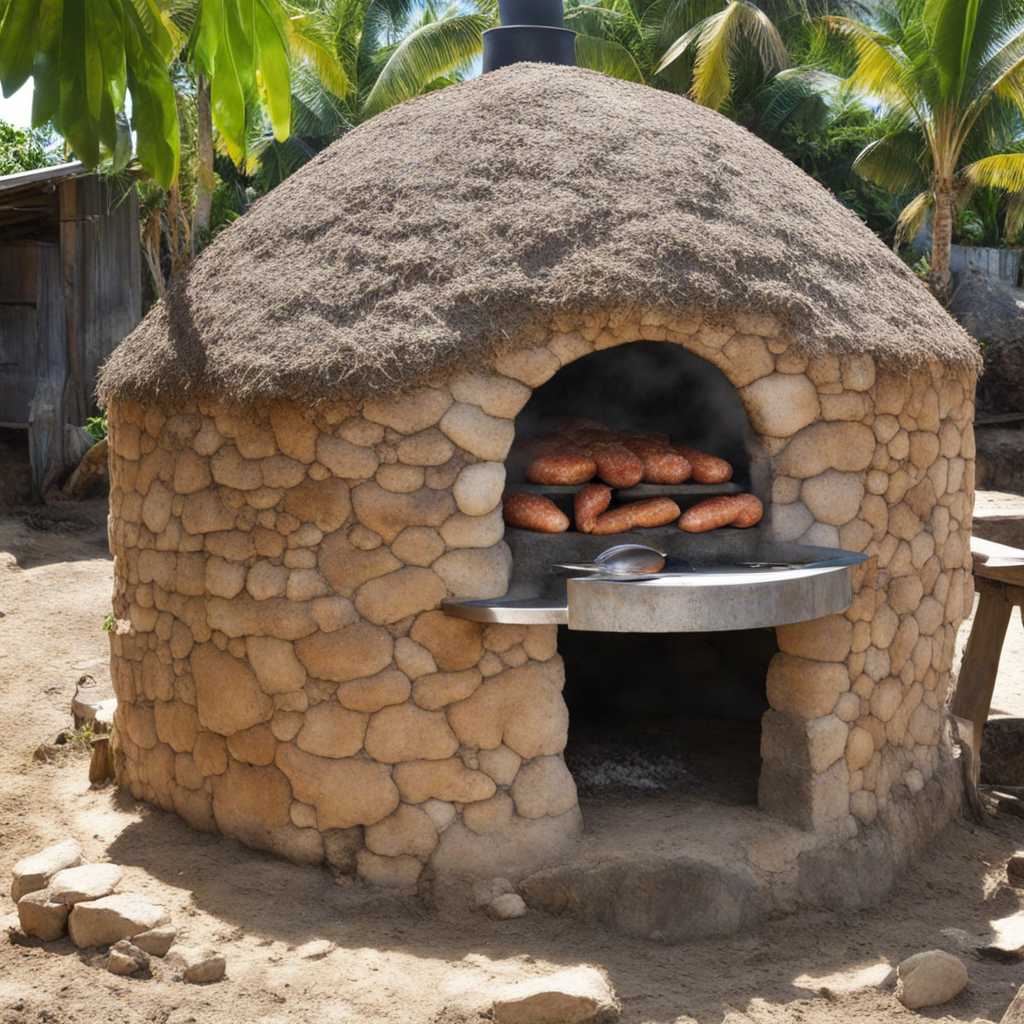Faikakai Malimali
The Faikakai Malimali is a delightful Tongan dessert that embodies the island's rich culinary heritage and the natural sweetness of its tropical ingredients. At its core, this dish features a base of sweet, ripe bananas that are mashed and mixed with creamy coconut milk, creating a luscious and velvety texture. What sets Faikakai Malimali apart is the addition of grated taro or cassava, which not only enhances the flavor but also adds a subtle earthiness that perfectly complements the sweetness of the bananas. Traditionally, Faikakai Malimali is steamed in banana leaves, allowing the flavors to meld beautifully while infusing the dessert with a hint of natural aroma. The steaming process also preserves the moisture, ensuring that each bite is rich and satisfying. The dish is often served warm, making it an ideal comfort food that evokes the warmth of the Tongan sun and the hospitality of its people. To elevate the experience, Faikakai Malimali can be garnished with toasted coconut flakes or a drizzle of honey, adding a lovely crunch and extra layers of flavor. Enjoying this dessert not only introduces you to the unique taste of Tonga but also connects you to the island's culture, where food is a celebration of nature's bounty and community. Each spoonful of Faikakai Malimali invites you to savor the simplicity and depth of Tongan cuisine, making it a perfect choice for anyone eager to explore new flavors.
How It Became This Dish
The Enigmatic Journey of Faikakai Malimali: A Culinary Treasure of Tonga Nestled in the heart of the South Pacific, the Kingdom of Tonga boasts a rich tapestry of traditions, languages, and culinary delights. Among these treasures is Faikakai Malimali, a beloved Tongan dessert that encapsulates the island's culture and the essence of its people. This dish, often served during celebrations and feasts, is a sweet reflection of Tonga's history, cultural significance, and evolution. Origins of Faikakai Malimali The origins of Faikakai Malimali can be traced back to the traditional Tongan practice of utilizing locally available ingredients. The term "Faikakai" translates to "to make food," while "Malimali" signifies "soft" or "tender," reflecting the dish's texture. At its core, Faikakai Malimali is a coconut pudding made from a blend of coconut cream, flour, sugar, and sometimes flavored with vanilla or other local spices. The dish pays homage to the rich agricultural practices of Tonga, where coconuts, taro, and cassava are staples. The arrival of Polynesians in Tonga, estimated to have occurred over 3,000 years ago, marked the beginning of a culinary evolution. As they settled on the islands, they brought with them their agricultural knowledge and culinary techniques. The Tongan people quickly adapted to their new environment, cultivating coconuts, yams, and taro. The use of coconut in Faikakai Malimali is particularly significant, as it represents both sustenance and cultural identity. Coconuts have long been revered in Tongan society, often considered a "tree of life" due to their versatility and importance in daily life. Cultural Significance Faikakai Malimali is more than just a dessert; it plays a vital role in Tongan culture and tradition. It is a dish commonly prepared for special occasions such as weddings, birthdays, and church gatherings. Its preparation often involves communal efforts, strengthening family bonds and fostering a sense of community. The act of making Faikakai Malimali can be seen as a celebration of Tongan hospitality, where sharing food is synonymous with sharing love and joy. In Tongan society, food is intertwined with spirituality and social customs. The preparation and presentation of Faikakai Malimali are often accompanied by traditional songs and dances, reflecting the importance of oral traditions in Tongan culture. The dish is typically served with fresh fruit or as part of a larger feast, highlighting the communal aspect of dining in Tonga. The sharing of food symbolizes goodwill, respect, and the spirit of togetherness that is central to Tongan values. Development Over Time As Tonga opened up to external influences in the late 19th and early 20th centuries, Faikakai Malimali began to undergo subtle transformations. The introduction of new ingredients and culinary techniques from European and Asian cultures prompted Tongan cooks to innovate while preserving their traditional roots. For instance, the incorporation of imported spices and flavors enriched the dish, allowing it to evolve while retaining its identity. The globalization of food culture also played a role in the development of Faikakai Malimali. With increased access to international ingredients, Tongan chefs began experimenting with variations of the dish, incorporating elements from other cuisines. Despite these changes, the essence of Faikakai Malimali remains deeply rooted in Tongan traditions, serving as a reminder of the islands' rich culinary heritage. In contemporary Tonga, Faikakai Malimali continues to be a cherished dish, enjoyed not only by locals but also by visitors seeking to experience the flavors of the islands. It has found a place in restaurants and cafes, where chefs often reimagine the dish to cater to modern palates while upholding its traditional significance. This balance between tradition and innovation is a hallmark of Tongan cuisine, reflecting the resilience and adaptability of Tongan culture. Faikakai Malimali in the Global Context In recent years, there has been a growing interest in Pacific Island cuisines, including Tongan food, as globalization has led to an exchange of culinary ideas. Faikakai Malimali has begun to gain recognition beyond Tonga, featured in food festivals and culinary showcases that celebrate the diversity of Pacific flavors. As Tongan communities spread across the globe, they bring with them their culinary traditions, including the treasured Faikakai Malimali. The rise of social media has also played a crucial role in popularizing Faikakai Malimali. Food bloggers, chefs, and home cooks alike have shared their interpretations of the dish, showcasing its beauty and versatility. This newfound visibility has sparked interest in Tongan cuisine, encouraging a deeper appreciation for its cultural significance and history. Conclusion Faikakai Malimali is more than just a delicious dessert; it is a symbol of Tongan identity and culture. Its origins are deeply rooted in the agricultural practices of the islands, while its significance extends beyond the culinary realm to encompass community, tradition, and spirituality. As it has evolved over time, Faikakai Malimali serves as a testament to the resilience of Tongan culture amidst external influences. In an era where traditional foods are often at risk of being overshadowed by globalization, Faikakai Malimali stands strong, embodying the spirit of Tonga. It invites all who partake in it to experience the rich history and vibrant culture of the islands, reminding us that food is not just sustenance but a connection to our heritage and to each other. As Tonga continues to navigate the complexities of modernity, Faikakai Malimali remains a cherished culinary treasure, a delicious link to the past, and a beacon of hope for future generations.
You may like
Discover local flavors from Tonga







